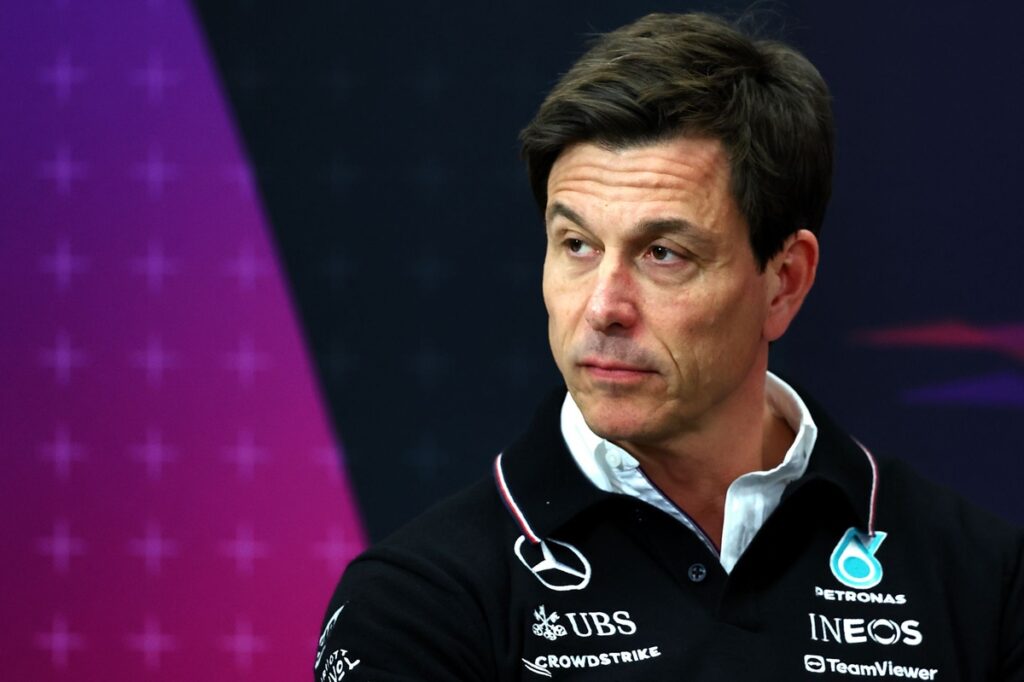Mercedes F1 Team Celebrates Strong Canadian GP Performance Amid Caution
A Promising Result in Montreal Sparks Optimism, Yet Caution Remains
Mercedes team principal Toto Wolff has emphasized that despite their impressive victory at the Canadian Grand Prix, his squad remains grounded and cautious about overestimating their current pace. The race, held on a scorching track surface, showcased Mercedes’ potential, but Wolff urges restraint, highlighting the importance of ongoing development and adaptability.
George Russell’s Dominance and the Significance of Qualifying
From the outset of practice sessions, George Russell’s Mercedes W16 demonstrated formidable competitiveness, positioning itself as a serious contender for victory in Montreal. During qualifying, Russell delivered what he called one of his finest laps, securing pole position ahead of Red Bull’s Max Verstappen. McLaren’s Oscar Piastri, the current championship leader, finished third, trailing the top two.
This performance echoes last year’s Canadian GP, where Russell also secured pole with a similar time to Verstappen but narrowly missed out on victory. While the raw speed was anticipated, Mercedes faced challenges with tire degradation in high temperatures, raising questions about their endurance in the heat.
Race Day: Mastering Tire Management in Extreme Conditions
On race day, with track temperatures soaring close to 50°C, Mercedes appeared to manage the heat effectively. Russell maintained control throughout the race, outperforming Red Bull in tire preservation and successfully countering Verstappen’s strategic undercut attempts. His ability to manage tires under such conditions was a key factor in his victory.
Adding to the excitement, young driver Andrea Kimi Antonelli achieved his first podium finish, overtaking Piastri to claim his maiden top-three result in Formula 1. Antonelli’s breakthrough underscores the rising talent within Mercedes’ development program.
The Role of Technical Innovations in Performance
A notable factor in Mercedes’ success was the deployment of a revised rear suspension geometry, first introduced at Imola, then temporarily removed due to correlation issues, and now reintroduced in Montreal. This upgrade appears to have contributed positively to tire stability and heat management, especially in demanding conditions.
Wolff attributes the improved performance partly to this suspension tweak, which was aimed at addressing rear tire overheating issues. The Montreal circuit’s unique layout, characterized by its smooth asphalt and absence of high-speed corners, also played to Mercedes’ strengths, as the team has historically performed well here.
Cautious Optimism and Future Challenges
Despite the encouraging results, Wolff remains cautious. He notes that Montreal’s track features less of the high-speed corners that typically challenge Mercedes in hot conditions, making it a somewhat favorable circuit rather than a definitive indicator of overall performance.
Looking ahead, Wolff points out that the upcoming races, such as Austria, will present different challenges due to varied track layouts and conditions. Last year, Russell’s victory in Austria was aided by a controversial incident involving Verstappen and Norris, and Mercedes was not the fastest team overall at that event.
Ongoing Development and the Uncertainty of Regulations
The reintroduction of the rear suspension upgrade suggests that Mercedes is on the right track with its development strategy. Wolff explained that the team initially tested the new geometry to combat rear overheating issues, and although correlation difficulties have persisted across teams, accumulating data is helping refine their approach.
He emphasized that in the current regulatory environment, no single solution guarantees dominance. Continuous testing, data collection, and adaptation are essential, and Mercedes remains committed to evolving its car to meet these challenges.
Summary: A Step Forward, But No Guarantees
While the Montreal race demonstrated Mercedes’ potential, Wolff’s cautious tone underscores the unpredictable nature of Formula 1. The team’s ability to adapt to diverse circuits and conditions will determine their success in the remainder of the season. As the sport evolves, Mercedes’ focus remains on incremental improvements and strategic innovation to stay competitive.

